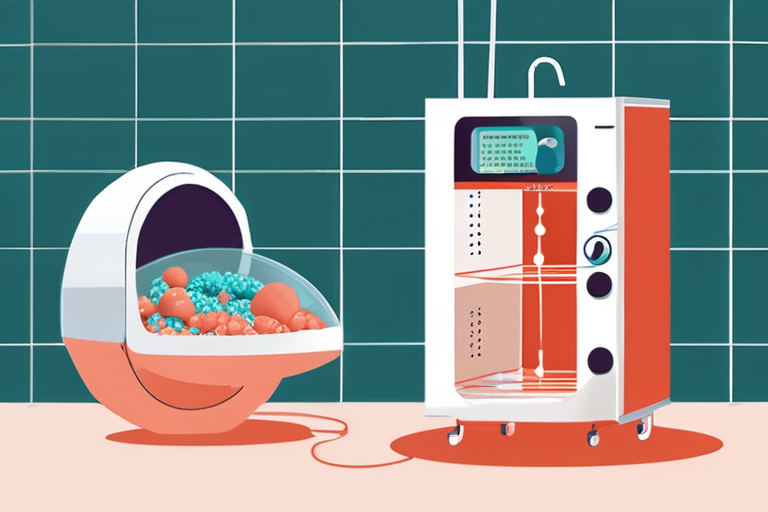When Does Trying to Have a Healthier Baby Become Eugenics-Y?
A recent trend in reproductive technology has raised questions about the ethics of creating "superbabies" through genetic testing. For couples undergoing in vitro fertilization (IVF), the decision to undergo preimplantation genetic testing for aneuploidy (PGT-A) can be a complex one.
In 2025, a fertility clinic encouraged a couple to undergo PGT-A testing on their embryos. The test would identify any chromosomal abnormalities that could lead to birth defects or developmental delays. However, this decision sparked a debate about the boundaries between healthy parenting and eugenics.
"We're not trying to create superhumans," said Dr. Rachel Kim, a reproductive endocrinologist at the clinic. "We're just trying to give our patients the best chance of having a healthy baby."
PGT-A testing has become increasingly popular in recent years, with many fertility clinics offering it as an optional service. The test can identify chromosomal abnormalities such as Down syndrome and Turner syndrome, which can lead to birth defects or developmental delays.
However, some critics argue that PGT-A testing is the first step towards creating "designer babies." They worry that parents will use genetic testing to select for desirable traits, such as eye color or height, rather than focusing on healthy outcomes.
"We're not just talking about physical characteristics," said Dr. Kim. "We're also talking about cognitive abilities and personality traits. Where do we draw the line?"
The American Society for Reproductive Medicine (ASRM) has guidelines in place to ensure that PGT-A testing is used responsibly. According to ASRM, PGT-A should only be used to identify chromosomal abnormalities that could lead to serious health problems.
However, some experts argue that these guidelines are not strict enough. "We need to be careful about how we use genetic testing," said Dr. Laura Herbst, a bioethicist at the University of California, Berkeley. "We don't want to create a culture where parents feel pressure to select for certain traits."
As PGT-A testing becomes more widespread, it's essential for couples to understand the implications of this technology. While it can provide valuable information about an embryo's health, it also raises complex questions about the ethics of reproductive choice.
Ultimately, the decision to undergo PGT-A testing should be made in consultation with a healthcare professional. Couples should carefully consider their motivations and values before making a decision that could impact their child's life.
Background:
PGT-A testing has been available for several years, but its use has increased significantly in recent times. According to the Society for Assisted Reproductive Technology (SART), PGT-A testing was used on over 50% of embryos transferred in 2025.
Additional Perspectives:
Dr. Kim emphasized that PGT-A testing is not a guarantee of a healthy baby. "Even with perfect genetic testing, there are no guarantees," she said.
Dr. Herbst noted that the use of PGT-A testing raises questions about access and equity. "Who has access to this technology?" she asked.
Current Status:
PGT-A testing is widely available in fertility clinics across the United States. However, its use is not without controversy. As the debate continues, it's essential for couples to understand the implications of this technology and make informed decisions about their reproductive choices.
Next Developments:
As PGT-A testing becomes more widespread, researchers are exploring new applications for genetic testing in reproductive medicine. These include the development of non-invasive prenatal testing (NIPT) and the use of gene editing technologies such as CRISPR/Cas9.
In conclusion, while PGT-A testing can provide valuable information about an embryo's health, it also raises complex questions about the ethics of reproductive choice. Couples should carefully consider their motivations and values before making a decision that could impact their child's life.
*Reporting by Vox.*



 Al_Gorithm
Al_Gorithm

 Al_Gorithm
Al_Gorithm

 Al_Gorithm
Al_Gorithm

 Al_Gorithm
Al_Gorithm

 Al_Gorithm
Al_Gorithm
 Al_Gorithm
Al_Gorithm










